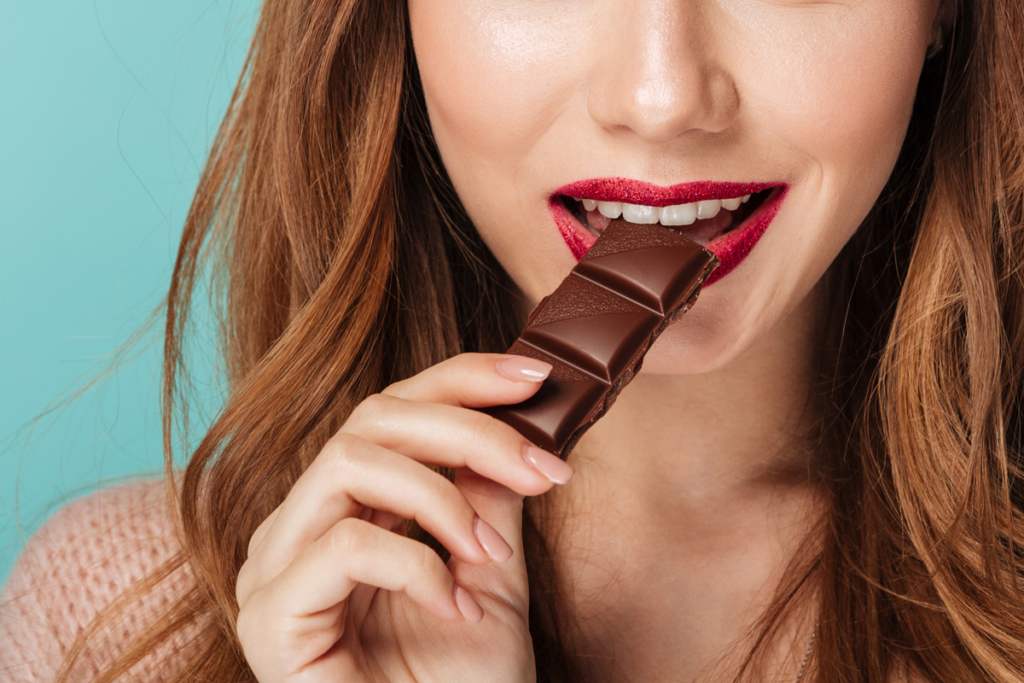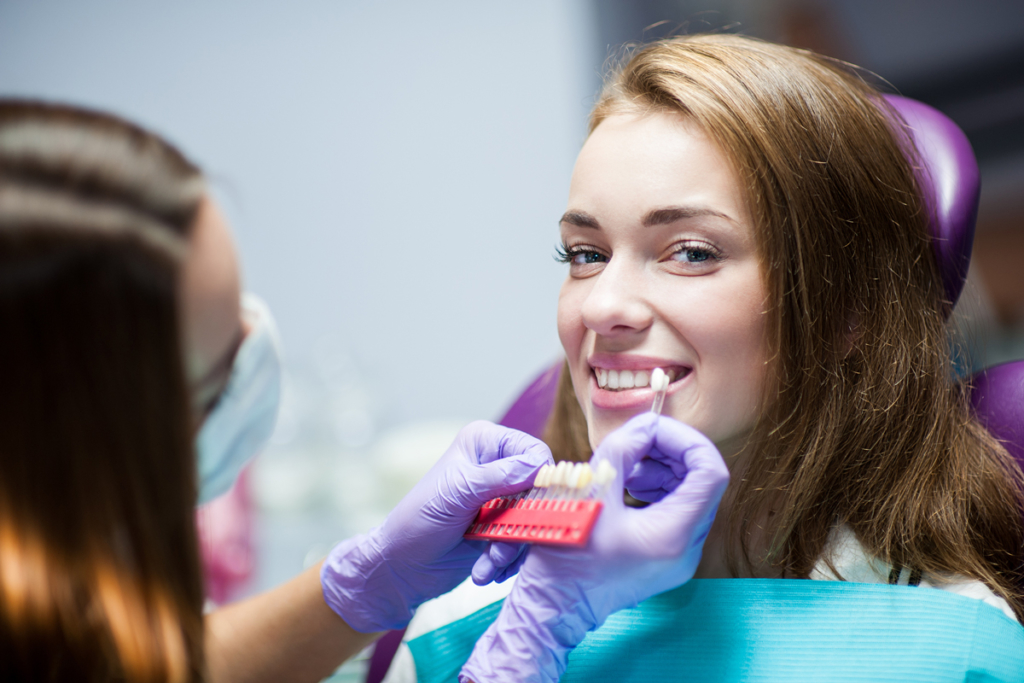Your Guide To Eating After Teeth Whitening
Professional teeth whitening treatment services are often used to develop a whiter and brighter smile. For some, the goal is simply to heighten and maintain the whiteness of their teeth. For others, especially those who suffer from tooth stains, the goal is to remove dark spots that have built up over time. Generally, in-clinic whitening services use high-grade stain-removing chemicals that can make the teeth sensitive and prone to discoloration for a period of time after.
What Happens To My Teeth During The Whitening Process
In order to understand what happens during the teeth whitening process, it is necessary to understand the basic structure of the tooth. Because teeth whitening happens on the outer, exposed surfaces, we just need to focus on the crown. The crown is the top part of the tooth that is visible when looking into the mouth. On the crown, you have two main layers, the enamel, and the dentin.
The enamel is the upper layer of the tooth, making it the strongest part. The enamel functions to protect the internal part of the tooth that holds delicate nerve endings and pulp. The enamel acts as a shield when we eat and drink. Cleaning your teeth every day is important in keeping the enamel strong. The more plaque that builds up, the weaker it gets.
The detin is the lower layer that helps prevent the enamel from fracturing and connects the protective layers to the rest of the tooth. It is elastic in nature, making it less strong than its enamel upper layer. This part of the tooth is highly susceptible to bacteria and tooth decay, which is why it sits under the protective enamel and surrounding gums. For optimal dentin health, it is important to not neglect the gums as they can recede and expose the fragile underlayer if they are not properly cared for.
During the teeth whitening treatment, a powerful chemical is used to break up the stains into smaller, lighter-colored pieces. This results in bright, white teeth. The whitening solution opens the pores in the teeth to lift stains, weakening the enamel and exposing the dentin. This is why your teeth will feel more sensitive, especially to varying temperatures, after the procedure. After the process, your teeth will take some time to get back to their strong, protected state. The aftercare steps are crucial to both maintaining your tooth health and extending the life of your whitening results.
Teeth Whitening After Care
The first 48 hours after a cosmetic teeth whitening procedure are the most crucial. This is when your teeth are at their most sensitive and are incredibly prone to stains and blemishes. When the high-grade whitening chemical is used to whiten the teeth, it opens the pores and lifts the stains. But once the process is finished, it takes some time for the pores to close back up again. This is why the first 48 window after your procedure is so crucial.
Post-teeth whitening treatment aftercare includes a couple of steps for optimal results. For starts, the teeth are incredibly sensitive during the healing period. Because of this, food and drinks that are either too hot or too cold can cause pain and discomfort. It is best to avoid foods on either end of this spectrum until the sensitivity goes down. To avoid hard to remove stains, brushing after every meal is recommended for the first few days. This is to prevent any discoloration while the pores are still open. Additionally, the foods you eat and don’t eat are key to maintaining your whitening results for longer.
Foods That Promote Tooth Stains
In the post-procedure period, there are foods that will penetrate the open pores more, causing blemishes that will be harder to remove in the future. For at least 48 hours, it is recommended that you avoid consuming these foods and drinks:

Dark food and drink
In general, darker foods and drinks are known to stain teeth. This is why it is often advised to brush your teeth after your morning coffee to avoid discoloration over time. During the open-pore period, these darker foods and drinks will cause hard to remove stains and undo much of the whitening work.
- Dark Food and Drinks To Avoid
-
- Red wine
- Coffee
- Sports drinks or drinks with added colorants
- Tea
- Any strongly colored beverages
- Tobacco products (try using nicotine patches)
- Cherries
- Chocolate, especially dark chocolate
- Beets
- Berries
- Dark Sauces, like soy sauce or tomato sauce
- Candy with added colorants
Acidic food and drink
Acidic foods and drinks are corrosive to the enamel in general on healthy, strong teeth. Because the whitening chemical weakens the enamel to lift stains, acid can penetrate the teeth making them more prone to decay and causing long-term discomfort.
- Acidic Foods and Drinks To Avoid
-
- Pickles and pickled vegetables
- Lemons
- Limes
- Sodas
- Citrus fruits (oranges, grapefruits, etc.)
- Citrus fruit juices (orange juice, lemonade, limeade, etc.)
- Sports drinks
- Tomatoes
- Fermented foods
- Sour cream
Foods That Are Safe After Whitening
While the lists of foods and drinks to avoid after the teeth whitening procedure can feel overwhelming, don’t worry, it doesn’t have to be a food-less 48 hour period. There are plenty of foods and drinks that you can consume without worrying about harming your newly whitened teeth. Often this is referred to as a “white foods list” as most of these are white or beige in color.
- Food and Drinks You Can Eat
-
- Turkey, chicken, and tofu
- Light fish (albacore, halibut, etc.)
- Rice, bread, and pasta
- Oatmeal and porridge
- White cheeses
- Yogurt without added colorants
- Water
- Light-colored fruits (bananas, pears, apples, etc.)
- Light-colored vegetables (white potatoes, cauliflower, white onions, white mushrooms, etc.)
- Egg whites
Abundant Dental Teeth Whitening Services

For professional and reliable cosmetic teeth whitening services, Abundant Dental is there for you. Our dental team provides in-clinic teeth whitening services to give you a brighter and whiter smile. Our trained and experienced dentists can answer all your pre and post-procedure questions and concerns. Contact our team today for more information or to schedule an appointment.








